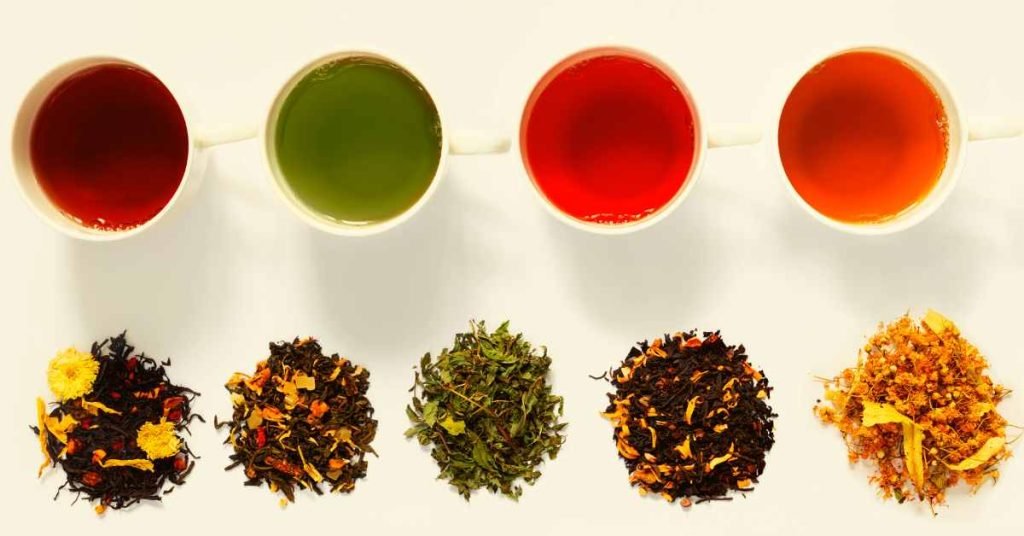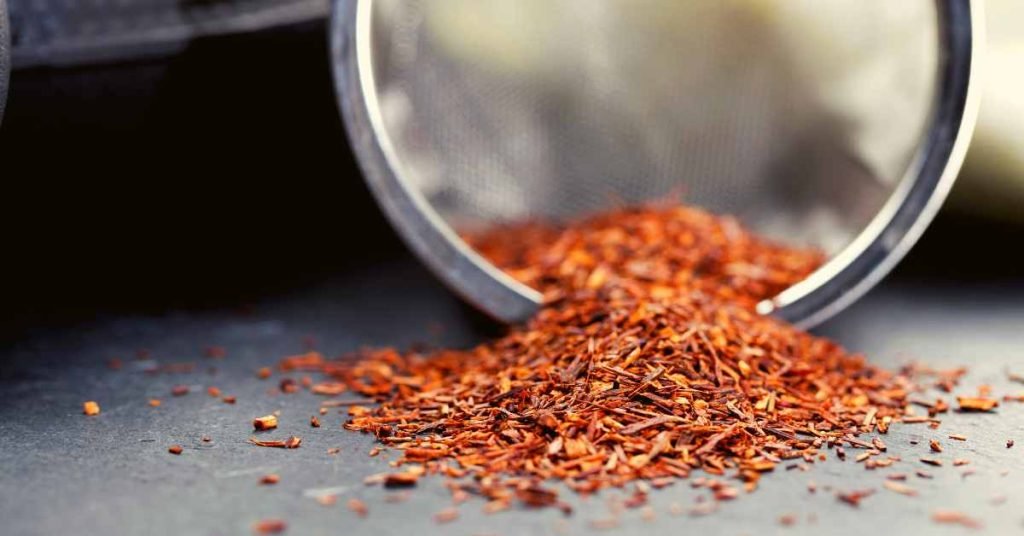Anaphylaxis is a severe and potentially life-threatening allergic reaction that requires immediate medical attention.
The standard protocol for managing anaphylaxis involves the administration of epinephrine and other emergency medical interventions.
However, there is ongoing research and interest in complementary approaches that may contribute to the overall management of anaphylaxis.
One such avenue being explored is the potential role of tea in mitigating anaphylactic reactions.
Understanding Anaphylaxis

Anaphylaxis is characterized by a rapid and severe allergic response that can affect multiple organ systems. Common triggers include certain foods, insect stings, medications, and latex.
The reaction can escalate rapidly, leading to symptoms such as difficulty breathing, swelling of the face and throat, a rapid or weak pulse, and a drop in blood pressure.
Immediate administration of epinephrine is crucial in managing anaphylaxis, as it helps reverse the symptoms and stabilizes the individual until further medical attention can be provided.
The Role of Tea in Anaphylaxis
While tea itself is not a substitute for medical intervention in cases of anaphylaxis, some studies suggest that certain components in tea may possess anti-inflammatory and anti-allergic properties.
Polyphenols, catechins, and other bioactive compounds found in tea, particularly in green tea, have been studied for their potential benefits in modulating the immune system and reducing inflammatory responses.

1. Anti-inflammatory Properties: Tea, especially green tea, contains polyphenols such as epigallocatechin gallate (EGCG), which have been shown to have anti-inflammatory effects. Inflammation is a key component of allergic reactions and substances that can dampen this response may have a role in managing the severity of allergic reactions.
2. Antioxidant Effects: Tea is rich in antioxidants, which can help neutralize free radicals and reduce oxidative stress. Oxidative stress is implicated in various allergic conditions, and the antioxidant properties of tea may contribute to a healthier immune response.
3. Immune Modulation: Some studies suggest that certain compounds in tea may modulate the immune system, potentially reducing hypersensitivity reactions. Green tea, in particular, has been investigated for its immunomodulatory effects, which could play a role in managing allergic responses.
4. Quercetin Content: Tea, especially varieties like black tea, contains quercetin, a flavonoid with anti-inflammatory and antihistamine properties. Quercetin is known to inhibit the release of histamine, a key mediator of allergic reactions, and may contribute to the management of allergic symptoms.
Considerations and Cautions
While the potential benefits of tea in managing anaphylaxis are intriguing, it’s crucial to approach this information with caution.
Tea should never be considered a replacement for standard medical care in cases of anaphylaxis.
Epinephrine remains the primary and life-saving intervention for severe allergic reactions, and immediate medical attention is essential.

Moreover, individual responses to tea can vary, and some individuals may be allergic to components in the tea itself.
People with known allergies should exercise caution and consult with their healthcare provider before incorporating large quantities of tea into their diet.
The exploration of tea’s potential role in managing anaphylaxis is a fascinating area of research.
While there is some evidence suggesting that certain components in tea may have anti-inflammatory and immune-modulating effects, it’s important to emphasize that tea is not a substitute for established medical interventions like epinephrine. Anaphylaxis is a medical emergency that requires prompt and appropriate medical attention.
As research in this field continues, it may provide valuable insights into complementary approaches to managing allergic reactions.
However, until conclusive evidence is available, individuals with allergies should adhere to established protocols and consult with their healthcare providers for personalized advice and treatment plans.
Choosing Teas for Potential Anaphylaxis Management: Exploring Varieties and Their Potential Benefits

Tea is a diverse beverage, with various types offering distinct flavors, aromas, and health benefits.
While research on the specific impact of different teas on anaphylaxis is limited, certain varieties are known for their potential anti-inflammatory and antioxidant properties.
It’s essential to note that the evidence supporting the use of tea in managing anaphylaxis is still in its early stages, and individuals with allergies should consult healthcare professionals before incorporating new elements into their diet.
Here are some teas that are often associated with potential health benefits:
1. Green Tea: Green tea is celebrated for its high concentration of polyphenols, particularly epigallocatechin gallate (EGCG). EGCG has been studied for its anti-inflammatory and antioxidant effects. Green tea’s potential to modulate the immune system may be beneficial in managing allergic responses, although more research is needed to establish a direct link.
2. Black Tea: Black tea, like green tea, contains polyphenols but in different proportions. It is a rich source of quercetin, a flavonoid known for its anti-inflammatory and antihistamine properties. Quercetin may inhibit the release of histamine, a crucial mediator in allergic reactions. The presence of theaflavins and thearubigins, unique compounds formed during the fermentation process of black tea, may also contribute to its potential health benefits.
3. Rooibos Tea: Rooibos tea is made from the Aspalathus linearis plant’s leaves, and is naturally caffeine-free and rich in antioxidants. Its potential anti-inflammatory properties might be attributed to polyphenols like aspalathin and nothofagin. While research on rooibos tea and anaphylaxis is scarce, its overall anti-inflammatory nature may contribute to immune system modulation.

4. Peppermint Tea: Peppermint tea is known for its soothing properties and potential anti-inflammatory effects. It contains menthol, which may help relax muscles, including those in the respiratory tract. While it may not directly impact anaphylaxis, its calming properties could potentially alleviate some discomfort associated with allergic reactions.
5. Chamomile Tea: Chamomile tea has been traditionally used for its calming and anti-inflammatory properties. It contains flavonoids, such as apigenin, which may have mild anti-allergic effects. Chamomile’s ability to promote relaxation may also help manage stress, which can be a factor in exacerbating allergic reactions.
While these teas offer potential health benefits, it’s essential to approach their consumption with caution, especially for individuals with known allergies.
Allergies to specific teas can occur, and cross-reactivity is possible. It’s advisable to introduce new teas gradually and monitor for any adverse reactions.
Moreover, tea should never be considered a primary or sole intervention for anaphylaxis. The administration of epinephrine and seeking immediate medical attention remain the gold standard for managing severe allergic reactions.
Tea, if considered at all, should be viewed as a complementary measure, and individuals should consult healthcare providers to ensure that it aligns with their overall healthcare plan.
In conclusion, while some teas possess components that may have potential benefits in managing allergic reactions, more research is needed to establish specific links to anaphylaxis.
The focus should remain on established medical interventions, and any exploration of tea’s potential benefits should be done with a healthcare professional’s guidance.
MEDICAL DISCLAIMER
Itsnevernotteatime.com cannot and does not contain medical/health advice. The medical/health information is provided for general and educational purposes only and is not a substitute for professional advice.




